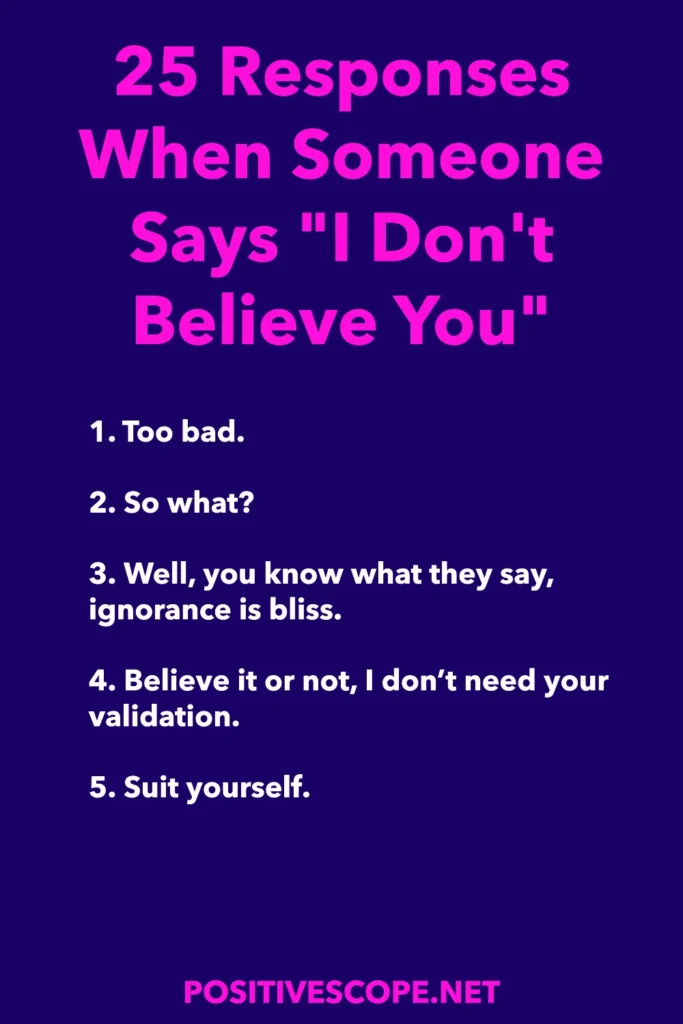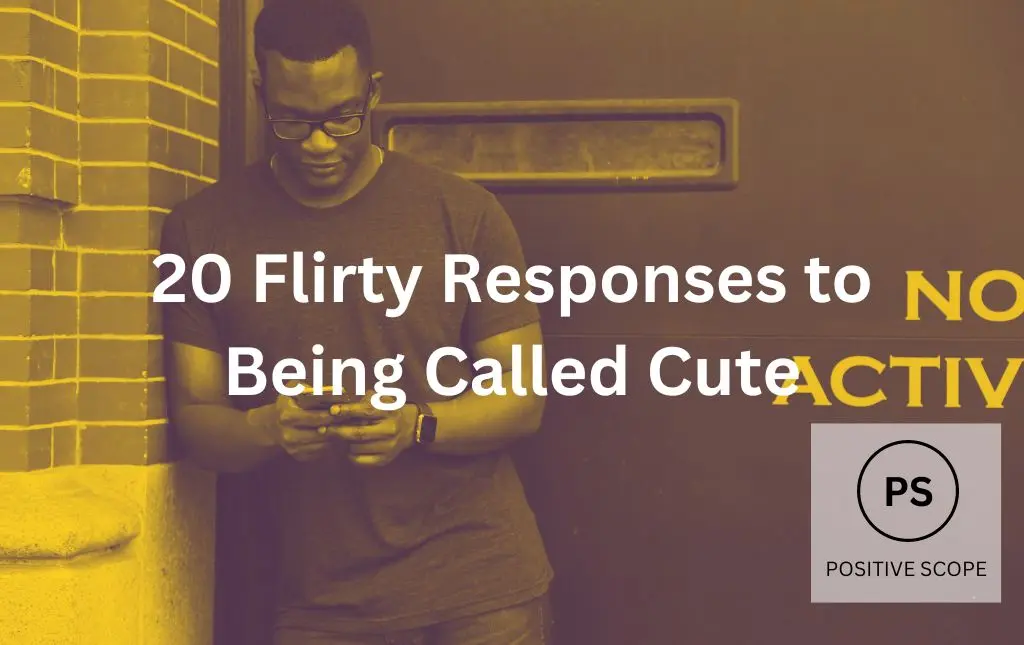25 Responses When Someone Says “I Don’t Believe You”
We’ve all been in that awkward situation where someone questions our credibility or simply doesn’t believe what we’re saying.
In this blog post, we will explore various strategies and tips for handling such situations with grace and confidence.
We’ll discuss the importance of remaining calm, providing evidence, and understanding the other person’s perspective.
So, let’s dive in and learn how to effectively respond when someone says, “I don’t believe you.”
How to respond when someone says I don’t believe you

When someone says “I don’t believe you” in response to your statement or claim, it can be a challenging situation to navigate. It’s essential to handle this kind of response with grace and clarity. Here are a few suggestions on how to respond:
1. Provide evidence or explanation: If you believe that the person’s doubt is based on a misunderstanding or lack of information, you can calmly offer evidence or provide a detailed explanation to support your statement. This approach helps address their skepticism and shows your willingness to engage in a constructive conversation.
2. Stay composed and confident: Maintain a calm and composed demeanor while responding. Even if their doubt feels frustrating or unfair, it’s crucial not to let it escalate into an argument. Confidence in your words and body language can help convey your sincerity and credibility.
3. Offer additional support: To further reinforce your point or gain their trust, you can offer additional resources or references. Sharing relevant articles, research findings, or personal experiences can help validate your statement and demonstrate that it’s not merely an unfounded claim.
4. Invite discussion: Instead of dismissing their doubt or becoming defensive, try to encourage an open and respectful discussion. Ask them what specifically makes them skeptical and give them an opportunity to express their concerns. Active listening and responding empathetically can foster understanding and help resolve any misunderstandings.
5. Respect their perspective: It’s important to acknowledge and respect the other person’s right to hold a different opinion. Avoid being dismissive or confrontational even if you strongly believe in your statement. Maintain a polite and considerate tone throughout the conversation.
6. Let it go if necessary: Despite your efforts to clarify or provide evidence, some individuals may persist in disbelief. Accepting their skepticism and moving on in such cases might be best. Not everyone will be convinced, and it’s okay to acknowledge that not everyone has to agree with you.
Remember, each situation is unique, and the best response may vary depending on the context and the relationship you have with the person. Assess the dynamics and choose an approach that aligns with your values and the desired outcome of the conversation.
You can also check: Witty Responses when someone says “You Have No Friends”
Why Would Someone Say “I don’t believe you?”
Sometimes, people might express disbelief by saying “I don’t believe you” because they don’t perceive the same things as you do in a given scenario.
They don’t have the same perspective or background knowledge, which can lead to skepticism or doubt. Additionally, their disbelief might stem from various factors, such as:
- Biases or preconceived notions: People may have their own biases or beliefs that make it difficult for them to accept new information or perspectives that challenge their existing views.
- Miscommunication: Misunderstandings can arise due to unclear communication or differences in interpretation. The person might not fully grasp your point, leading them to question your credibility.
- Lack of trust: Trust plays a significant role in accepting what others say. If someone doesn’t trust you or has had negative experiences with others in the past, they may be more inclined to doubt your statements.
- Emotional reactions: People’s emotions can sometimes cloud their judgment and make them more resistant to accepting new information. If they’re feeling defensive, angry, or upset, they may be more likely to say “I don’t believe you.”
Understanding the underlying reasons for someone’s disbelief can help you tailor your response and address their concerns more effectively.
You can also check: Ways to Respond When Someone Says “I Don’t Deserve You”
Best Responses to “I Don’t Believe You”

- Well, that’s your problem, not mine.
- Believe it or not, I don’t need your validation.
- I’m sorry, did I ask for your opinion?
- Too bad.
- So what?
- Your loss.
- That’s fine, I don’t believe you either.
- Good thing I’m not trying to convince you then.
- Well, you know what they say, ignorance is bliss.
- You don’t have to believe me, just trust me.
- Suit yourself.
- Tough luck.
- Who cares?
- Whatever.
- You know what they say, seeing is believing. Maybe you need glasses.
- That’s okay, I don’t believe in unicorns, but they still exist.
- You’re entitled to your own beliefs, even if they’re wrong.
- And?
- Oh well.
- Bummer.
- I guess you’ll have to find out for yourself.
- You’re right, you don’t believe me. You just envy me.
- I don’t blame you, it’s hard to believe how amazing I am.
- I’m sorry, did you say something? I was too busy being right.
- You’re free to believe whatever you want, even if it’s a lie.
Final Thoughts
Responding effectively when someone says “I don’t believe you” requires a combination of patience, understanding, and clear communication.
You can navigate these challenging situations with grace and confidence by providing evidence or explanation, staying composed, inviting discussion, and respecting their perspective.
Keep in mind that it’s not always possible to convince everyone, and it’s okay to let go and move on if necessary.
The goal is to maintain respectful and constructive conversations, even in the face of skepticism or disagreement.




